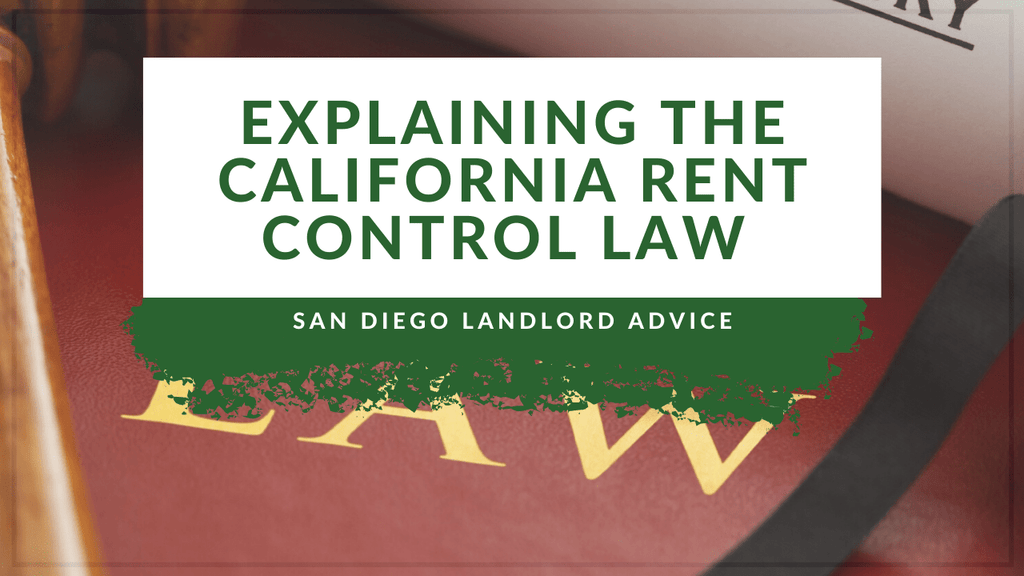
A new statewide rent control law went into effect for California in 2020, and it’s called the Tenant Protection Act or AB1482. There’s more involved than just rent control, and if you’re feeling overwhelmed and confused about what this new law means for you and your rental properties in San Diego – you’re not alone. As we implement and execute these new regulations, there are bound to be questions that can only be decided in court.
Today, we want to use our San Diego property management experience to explain the main components of AB1482 and help you make sure you’re in compliance. We are not lawyers, and if you have any questions about your specific parts of this law and how they pertain to your investments, please contact us and we will refer you to an attorney who is experienced in landlord issues and rent control.
AB1482 and San Diego Rental Laws
With the implementation of AB1482, landlords in California are required to restrict their annual rental increases to five percent plus whatever the Consumer Price Index (CPI) determines to be the inflation increase.Generally, it means you won’t be able to raise your rent more than seven or eight percent every year. This law is in effect for 10 years.
Any local rent control regulations will take precedence over the statewide law. However, if there’s a property that was exempt from a local rent control law but can be included in the statewide law, then it falls under AB1482 and rental property owners who previously did not have to worry about rent control now must follow the state law.
You should also be aware of the look-back provision in this legislation. AB1482 rolls back to March 19, 2019. So, if you’re a landlord who anticipated that rent control was coming and you decided to raise your rent 25 percent between March 19, 2019 and the effective date of January 1, 2020, you’ll need to roll that back to the legally permissible amounts now.
San Diego Rental Property Exclusions
Your rental property may be exempt from the rent control laws if you meet one of these conditions:- Your property received a certificate of occupancy in the last 15 years. A rental home that’s 12 years old is not covered by rent control laws now, but will be in three years. It applies to properties that are 15 years old or older.
- You’re renting out a single-family home or a condo and you’re not a REIT, corporate entity, or an LLC with one member being a corporation. Individuals renting out a single-family property are exempt from rent control laws.
- You’re renting out a duplex and you live in one of the units as your primary residence.
- Owners of mobile homes who are renting out their property.
Just Cause Evictions and San Diego Rental Laws

If you’re evicting a tenant due to no fault of theirs, you may have to pay a relocation fee that is equal to a full month’s rent. For example, if you want to take possession of the property back so you can do some major renovations or move into it yourself, the tenants currently living there are entitled to a month of rent.
All of these legal changes illustrate the importance of working with a San Diego property management company. Trying to navigate the legal landscape can lead to expensive mistakes. Contact us at Mercer Properties, and we’d be happy to be your property management resource.

